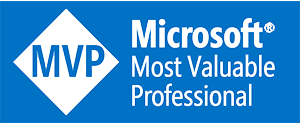Tag Versus
Short-term vs long-term perspective in software development
In this post, I’d like to talk about what I think is one of the most damaging attitudes a company or a person can have in the field of software development: short-sighted perspective.
Always valid vs not always valid domain model
I’m back to the regular posting schedule. No more game development, at least for now.
IEnumerable vs IReadOnlyList
I apologize to everyone who’s waiting for my response to their code review requests. I was busy dealing with some personal stuff the last couple of weeks. Moving forward, I’m going to maintain a one post a week schedule where "regular" articles would take turns with code reviews. This article is a regular one, so the one next week would be a code review.
Today, I’d like to talk about IEnumerable and IReadOnlyList collection interfaces. We’ll discuss which of them is preferable and in what circumstance.
OCP vs YAGNI
In this post, I want to cover the topic of OCP vs YAGNI - contradictions between the Open/Closed Principle and the You aren’t gonna need it one. OCP Let’s start with a refresher for what OCP is. The Open/Closed principle states that: Software entities (classes, modules, functions, etc.) should be open for extension, but closed for modification. It was first introduced by Bertrand Meyer in his canonical Object-Oriented Software Construction book.
Singleton vs Dependency Injection
This post is a showcase for the Singleton design pattern. In contrast to the common belief, Singleton is not inherently bad and I’ll try to show you in what circumstances it is a good choice.
3 ways of achieving code correctness
Code correctness verification is not an easy task. At the same time, it’s one of the most important problems we have when we build software projects. In this article, I’ll compare 3 different ways of achieving code correctness.
KISS vs database normalization
In this article, I’d like to share an example of how the KISS principle can go against the database normalization principles and how to make a choice in such situation. The example Some time ago, I had a task which required me to implement linkage between the users of an application and their social accounts. At the time, we planned to add only two social providers - Facebook and Google - but others could be potentially integrated as well in the future.
Entity vs Value Object: the ultimate list of differences
The topic described in this article is a part of my Domain-Driven Design in Practice Pluralsight course. I wrote about entities and value objects some time ago. In this post, I’d like to talk about differences between Entity vs Value Object in more detail. I know, the topic isn’t new and there are a lot of articles on the Internet discussing it already. Nevertheless, I didn’t find any with an exhaustive, comprehensive description, so I decided to create my own.
Domain-centric vs data-centric approaches to software development
In this post, I’d like to make a comparison of two approaches that prevail in the world of (mostly enterprise) software development: domain-centric and data-centric. If you read my last post (or any other post, quite frankly), you might have noticed I personally gravitate towards the domain-centric approach. Although this article is intended to be an impartial one, keep in mind that my bias can leak out. Domain-centric vs data-centric approaches The main difference between the two approaches is in the way people adhering to them treat software.
SQL vs NoSQL: you do want to have a relational storage by default
The concept of NoSQL databases has been around for a while, but there still are quite a few misunderstandings regarding the topic of relational SQL vs NoSQL databases. In this post, I’d like to clarify the most common misconceptions and discuss the primary use cases for each of them.




